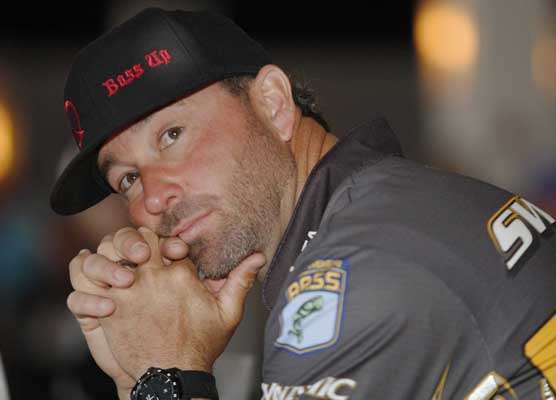
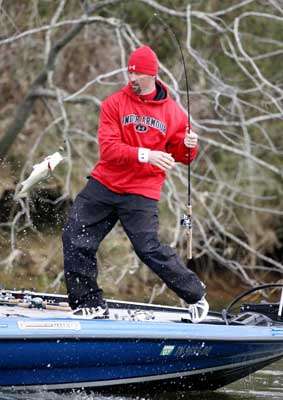
I was born in Jackson, Miss., but my family moved to Alabama when I was nine, and I’ve lived there ever since.
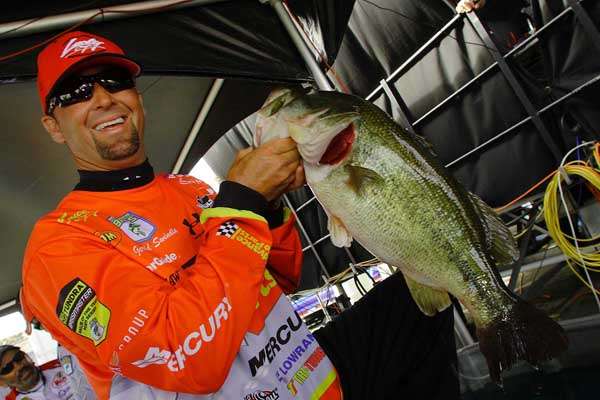
Through my father (Tommy Swindle) and grandfather (Guy Swindle). I got my love of fishing through them and my love of competitive fishing through my father.
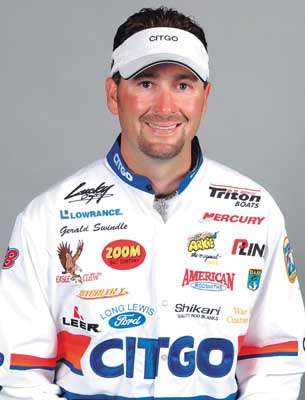
I’m not sure how old I was when I caught my first bass, but probably my fondest memory of fishing as a little kid was when I was seven or eight years old and caught a big bass in the pond behind our house. That fish probably weighed about 5 pounds, and I caught it using a Zebco 33 and an old Arbogast Mud Bug crankbait.
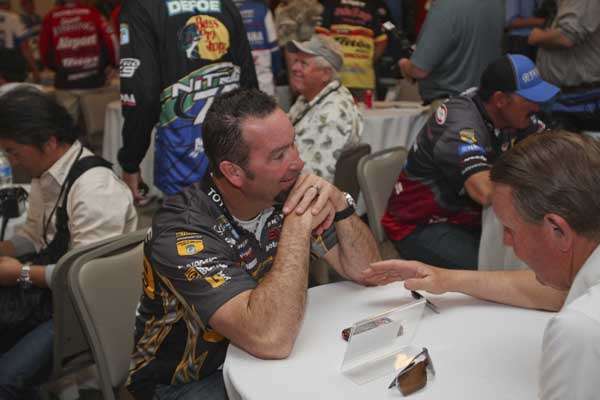
I didn’t watch the TV fishing shows when I was a kid, so I didn’t know about Bill Dance or Roland Martin or Jimmy Houston. My fishing hero was my dad. He caught fish everywhere we went, and I thought that was the greatest thing ever.
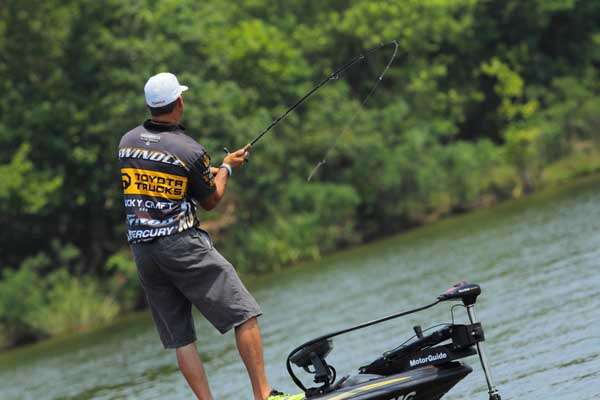
I’ve caught two bass that weighed right at 12 pounds â one from Lake Amistad and one from Lake Guntersville.
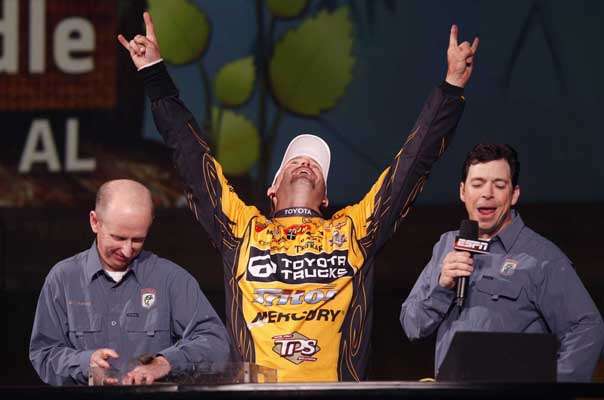
I can tell you two things I really love about the sport. First is the adrenaline rush I get when I’m fishing. I love the high of it and think it must be better than anything you could ever get from any drug. The other thing is the joy of figuring them out, understanding what the fish are doing and knowing what you have to do to make them bite because you’re really dialed in to what’s going on. That doesn’t happen every time you go fishing, but when it does it’s really special.
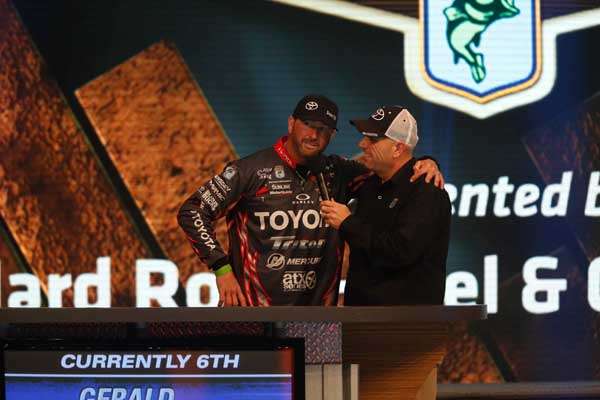
It would have to be Lake Guntersville. I have so many great memories from childhood of fishing there. My wife and I have a place there now and love it. It’s beautiful and you can catch ’em all year round.
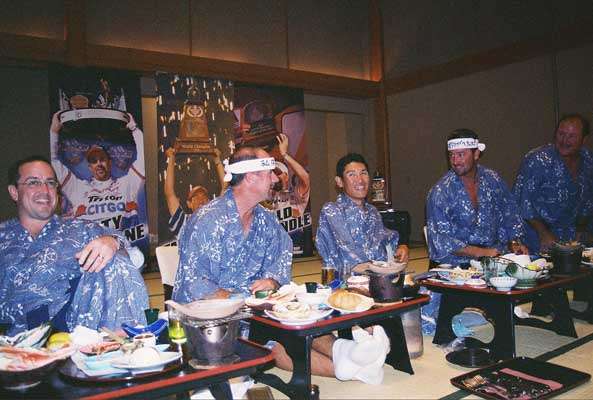
After my dad, Marty Stone (second from left) was probably my biggest influence. He and I came up through the ranks together and learned about being professional anglers together.
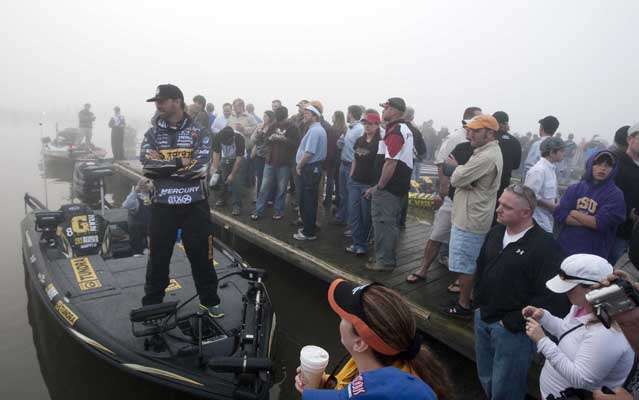
I’m not there yet, so I can’t answer that question. I feel like every day I go out on the water I have something to prove. I’ll let you know when I’ve made it.
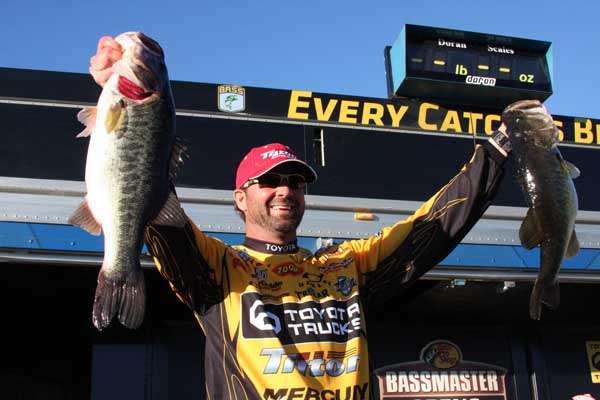
Winning the Toyota Bassmaster Angler of the Year award in 2004 was a big deal to me, and it’s certainly my most important trophy, but being able to do what I love every day to support my family means just as much or more.
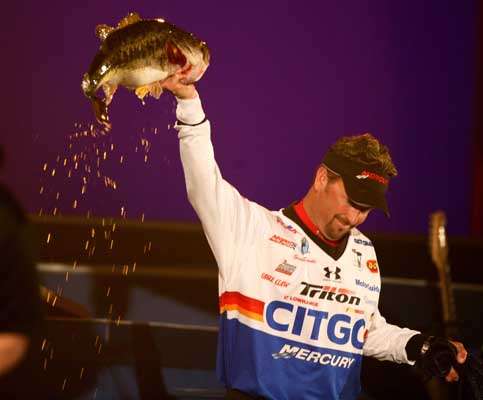
We’re getting high school and college anglers more involved. They’re the next generation of professional anglers, and it’s important that we give them the foundation and basis to succeed.
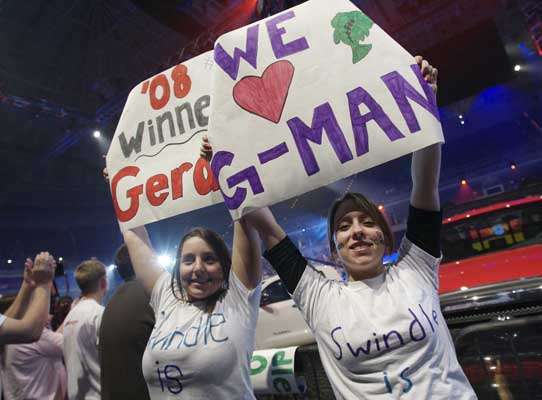
We need to do a better job of teaching the basics to the next generation of anglers. You can’t advance and develop without good fundamentals in any sport, and bass fishing is no different. We need to provide a good template for them.
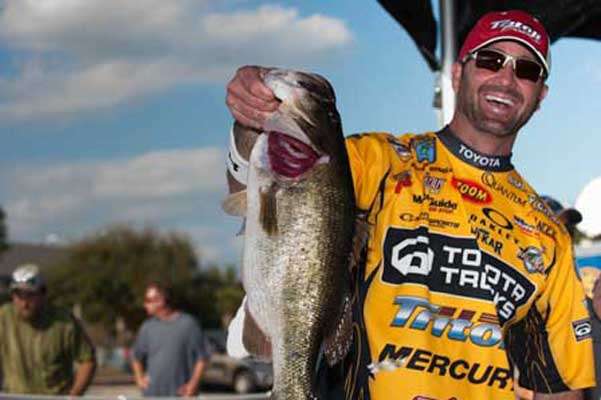
Making it exciting. I get frustrated when people tell me that fishing is not an exciting sport. It’s the most exciting sport I know! Too often we overlook the “fun factor” of fishing. At the St. Johns River this year (2014), I caught an 8 pounder off a bed and got so shook up I couldn’t retie. My Marshal was laughing and telling me he couldn’t believe how excited I got. I just love this sport, and when you love it, it shows. If you’re just out there to make a living and it’s only a job to you, that shows, too.
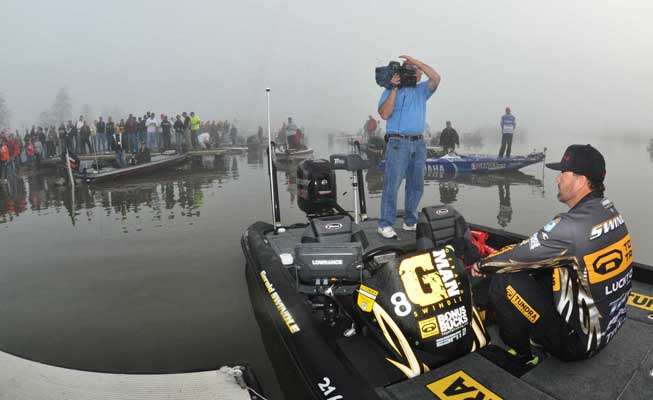
My brother Tony passed away from pancreatic cancer a few years ago while I was fishing a tournament. Being away from my family during that time was probably the toughest thing I’ve ever gone through. I struggled with it for months. Tony told me before he passed that he wanted me to fish and be at the tournament, but it was hard. Nothing else I’ve been through â back surgeries, shoulder surgeries, career struggles â can even begin to compare.
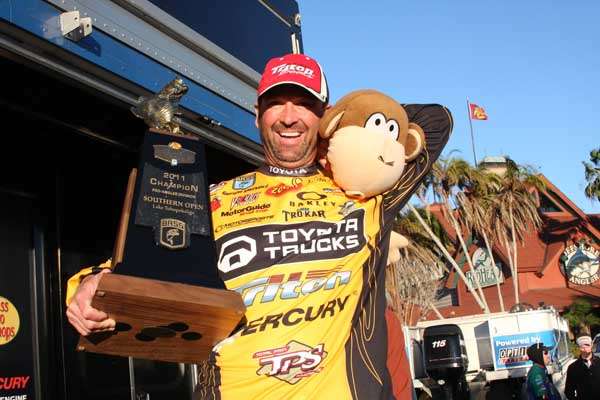
I love to joke around and have fun with people, but when I get home I’m very private and enjoy my time with my wife and family or alone in the woods or on the water. When people see me on stage or around a weigh-in that might surprise them.
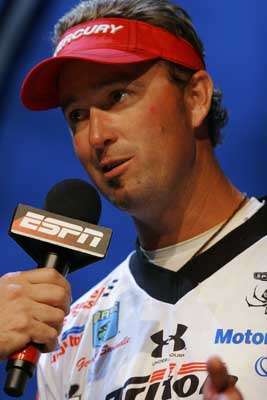
I’d like to have another chance at Day 3 of the 2005 Bassmaster Classic (Swindle finished third, about a pound behind winner Kevin VanDam). I lost the winning fish four times that day and didn’t weigh in a limit. That’s the only tournament that haunts me.
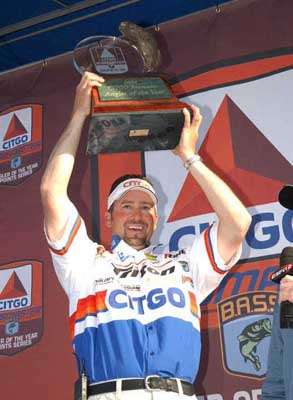
Right after I won the 2004 Angler of the Year title, Rick Clunn walked up to shake my hand and said, “Always remember how you feel right now.”
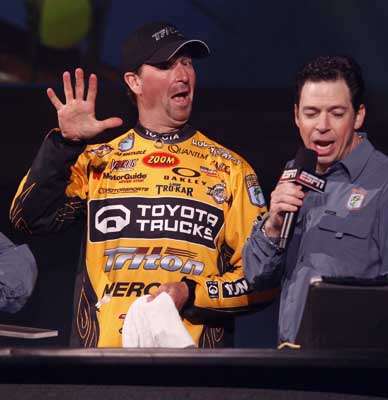
The ability to adjust and start fresh. When Plan A isn’t working, I’m ready to start over and try something new right away. My brain is like an Etch a Sketch â I can clear it and move on fast, and I know a lot of guys who struggle with that. When their plan falls apart they can’t move on in time, so it sets them up for failure. When I move on to something new or different, I can change focus very easily. I’ve always been able to do that, and I’ve honed it over the years to make it part of my regular routine. It really helps in this business.
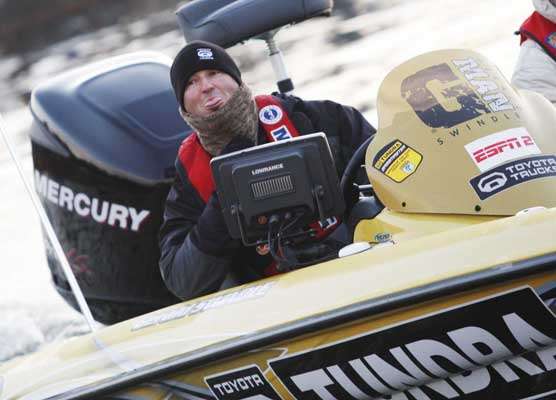
Lily pads! I hate those things! There’s too many of them, and they all look the same!
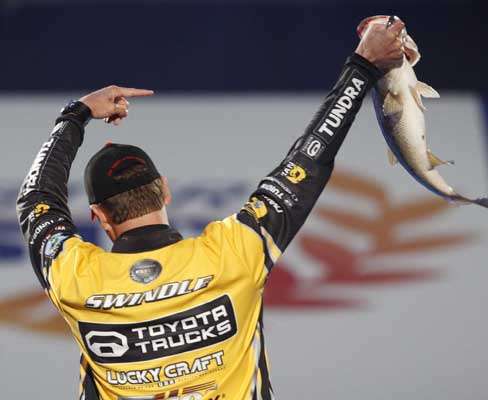
I’d like to be remembered as someone who contributed and as a man of my word. When you look at a headstone in a graveyard, it usually has three things under the name â the year they were born, the year they died and a dash in between. That dash might look unimportant, but it’s everything. It’s what happened between those dates, and it’s what matters. I want people to know that Gerald Swindle lived the dash.
